Written by Ravinder Kaur.
Join Ravinder Kaur as she takes to the seas of Langkawi and explores Marecet, a non-profit organization committed to the protection of Malaysia’s surprising number of marine mammal species.
Put your seat in an upright position, secure your food tray, and look out the window. As the plane descends on the legendary island of Langkawi, seize the opportunity to take in the aerial view to spot something extraordinary in the waters below. Amidst the rolling waves of the blue sea, pods of dolphins may be seen leaping through the waters, among the sailboats. If you’re really lucky, you may even spot a whale. This may be news to some, but Malaysian seas are host to a total of 27 species of whales, dolphins, porpoises, and the dugong. From that total, at least five species of these marine mammals are known to inhabit Langkawi’s waters.
Indeed, Langkawi is endowed with natural beauty. Besides being a dutyfree island, it’s a melting pot of tourists as sun worshipers worldwide gravitate towards this tropical island. One can choose to island-hop through 99 islands, take overnight cruises, go snorkelling, or participate in various watersports or beach activities. For the land lovers, there is still plenty to do, from riding the cable car up Gunung Mat Cincang, visiting the vast paddy fields, or experiencing traditional batik cottage industries. Yet, many are unacquainted with the rich biodiversity Langkawi has to offer.
In Langkawi’s waters, one can find marine mammals such as the Indo-Pacific finless porpoise (Neophocaena phocaenoides), Indo-Pacific humpback dolphin (Sousa chinensis), Indo-Pacific bottlenose dolphin (Tursiops aduncus), Irrawaddy dolphin (Orcaella brevirostris), and Bryde’s whale (Balaenoptera edeni). Even the enigmatic dugong (Dugong dugon), an animal that gave birth to the mermaid myth, has been recorded here.
Marine mammals live entirely in their aquatic environments. They are found in a variety of habitats, among the mangroves, along the coastal areas, in the estuaries and the open seas. Like all mammals, they are warm-blooded animals that breathe using their lungs and give birth to live young that they then nurse. Cetaceans are a group of marine mammals comprising whales, porpoises, and dolphins. They are found all along the east and west coasts of Peninsular Malaysia, and along the coasts of Sarawak and Sabah. They are also found in the offshore waters of the South China Sea, Sulu Sea, Sulawesi Sea, Andaman Sea, and in the Straits of Malacca.
Sirenians are another group of marine mammals, consisting of dugongs and manatees. Dugongs are the only sirenian found in the Southeast Asian region and, in Malaysia, they can be found in the Johor Straits, around the Johor east coast islands (Sibu-Tinggi-Besar-Rawa), in Lawas Bay, Sarawak, and in the coastal areas of Sabah, where they have plenty of sea grasses to graze on.
Marecet
Orcaella brevirostris
Being drawn to these intriguing marine animals, two extraordinary Malaysians, Dr. Louisa Shobhini Ponnampalam and Fairul Izmal Jamal Hisne, decided to dedicate their lives to the protection of marine mammals in Malaysia. Throughout the years, they noticed a major disconnect between science and applied conservation efforts on the ground. To address this issue, they co-founded an environmental non-profit non-governmental organization called The MareCet Research Organization (MareCet), taking its name from the Latin mare (ocean) and cetacean, the two primary focal points for the group.
MareCet is the first – and currently only – non-profit organization focusing on conducting marine mammal research and conservation in the country. The organization conducts its own research and uses marine mammals as a mascot for spreading the conservation message. MareCet’s work helps to increase scientific knowledge on marine mammals in the region and to improve the understanding of and appreciation for the marine environment amongst the general public. MareCet also aims to build local capacity and interest in marine mammal research and conservation, through volunteer opportunities within their projects, by providing training to undergraduate and postgraduate students, and have government agency personnel participate in the research.
Presently, one of MareCet’s project is the Langkawi Dolphin Research (LDR) which was established to further understand the marine mammal diversity, distribution, behaviour, and ecology and their interactions with human activities, in order to assess and monitor the animals’ conservation needs. The LDR project also looks into the natural and humanbased threats to these marine mammal populations and works closely with authorities and local communities to develop a workable solution.
The Co-Founders
Dr. Louisa is a cetacean ecologist who began her education in marine science at the University of Hawaii at Hilo, Hawaii. She then went on to pursue her Ph.D. on a prestigious Commonwealth Scholarship at the University Marine Biological Station in Millport, Scotland, researching small dolphins in the Sea of Oman and the Arabian Sea. Louisa is a Member of the IUCN Species Survival Commission’s Cetacean Specialist Group and Sirenian Specialist Group, both of which comprise leading scientists from around the world spearheading cetacean and sirenian conservation efforts worldwide. In 2014, she was awarded the prestigious Pew Fellowship in Marine Conservation and made history as the first Malaysian to have received such an honour. She is also the founding member of the Malaysian Marine Mammal Stranding Network.
Fairul is a marine biologist who began his education in Medical Laboratory Sciences in PTPL College, Malaysia, where he was involved in human pathological analysis and medical forensics. He subsequently continued his education at the University of Waikato, New Zealand, to pursue a Bachelors of Science degree in Marine Sciences. Since then, he has designed, managed and implemented a variety of marine and coastal environmental research and conservation projects both in Malaysia and overseas. He has also been involved in a number of policy consultations notably as a former member of the National Advisory Council for Marine Parks, founding member of the Malaysian Marine Mammal Stranding Network, and other policy platforms such as the United Nations Convention on Biological Diversity, Convention on Migratory Species and the Coral Triangle Initiative. He is also actively involved in engaging the private sector, namely oil and gas, tourism and infrastructure sectors, in assessing impacts of their operations to the marine environment and biodiversity and developing measures to mitigate them.
Support Marecet!
Sousa chinensis
MareCet firmly believes in the spirit of collaboration and welcome supporters or partners in all of their activities. Anyone above 18 years old can be a volunteer regardless of background.
MareCet’s activities involve more than just research work, so volunteers can potentially be exposed to a number of different experiences from field surveys, data analysis, awareness campaigns, event management, project management, and much more. MareCet also welcomes partnership opportunities such as philanthropic donations, project partnership, contributions in-kind, skills and technological support, and manpower. Donations are tax exempted.
Threats to marine mammals include:
• Entanglement in fishing gear
• Habitat degradation from development activities
• Pollution
• Depletion in prey resources
• Collision with ships and other marine vessels
• Underwater noise (e.g., underwater piling and seismic exploration activities)
• Hunting/Poaching
To find out more, please visit marecet.org or email ask.marecet@gmail.com.
Read more:
- Is All Forgotten Now That the Haze Has Cleared?
- The Rise of Urban Farming in Malaysia
- How Asean and the World Need to Do More to Tackle Indonesia’s Fires
Source: Senses of Malaysia November-December 2015



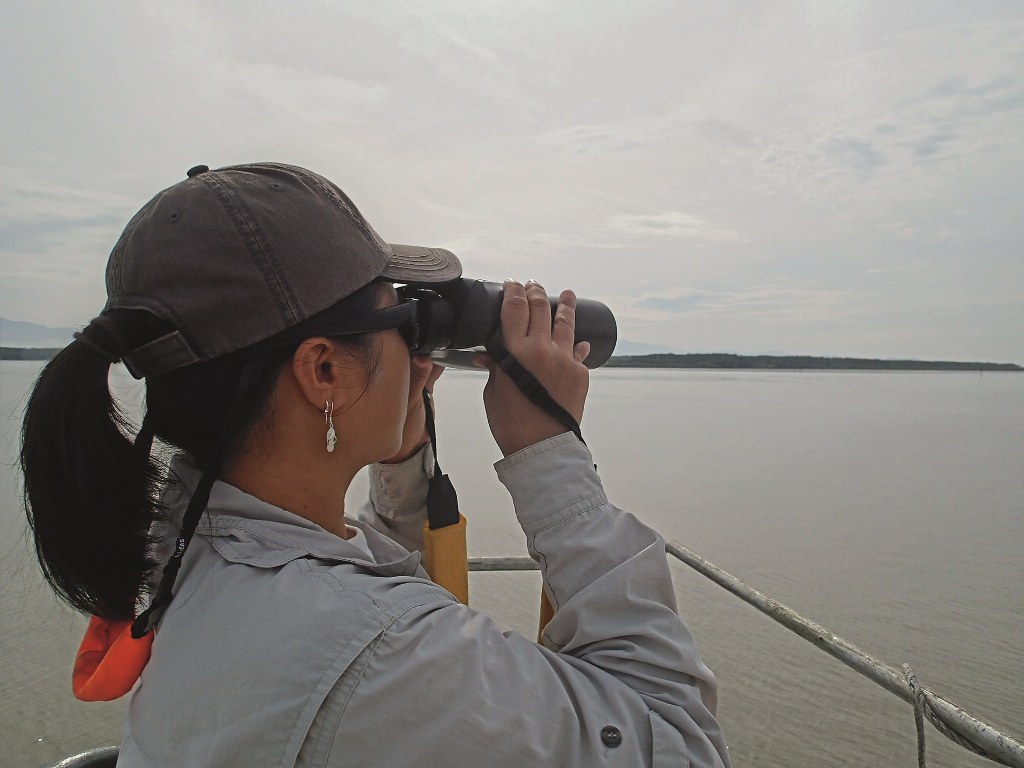
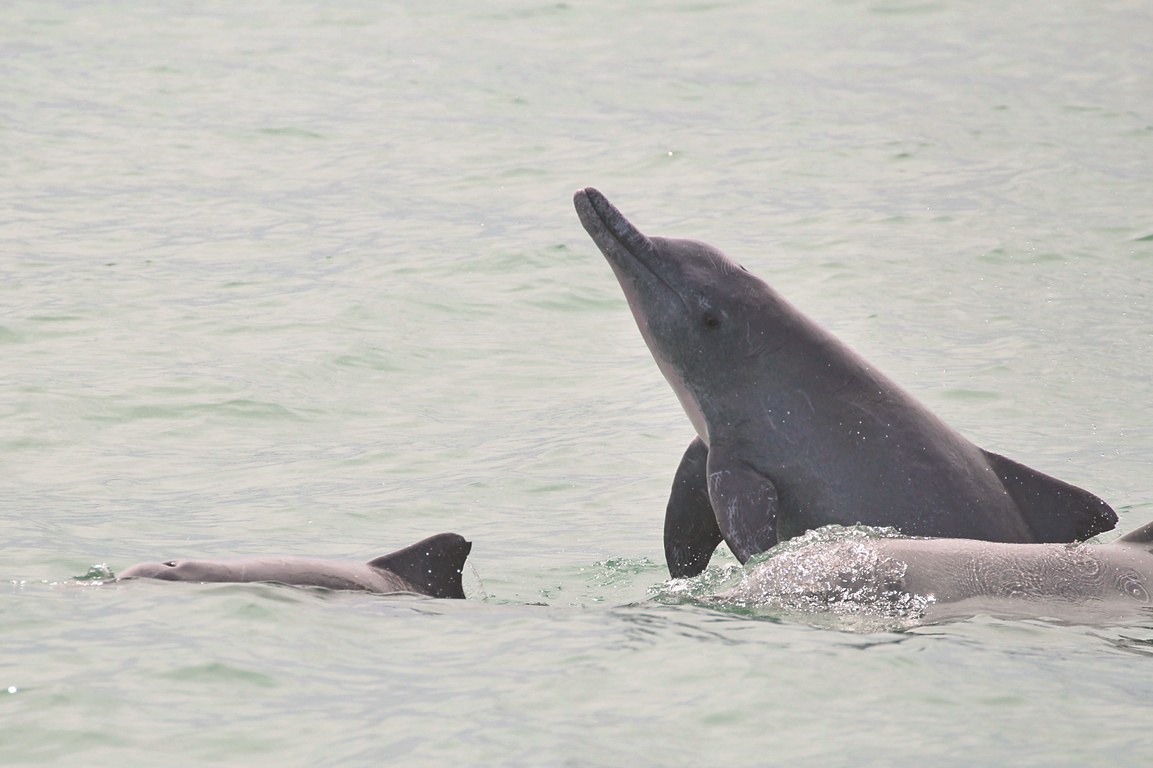
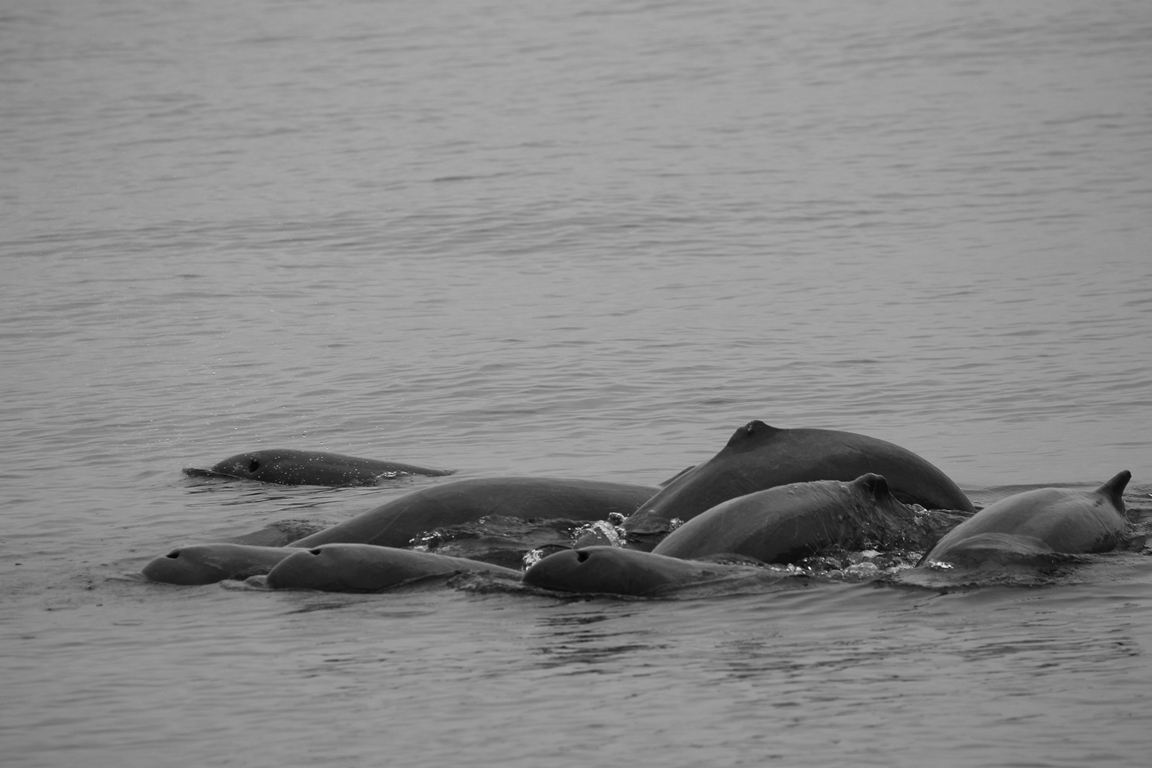
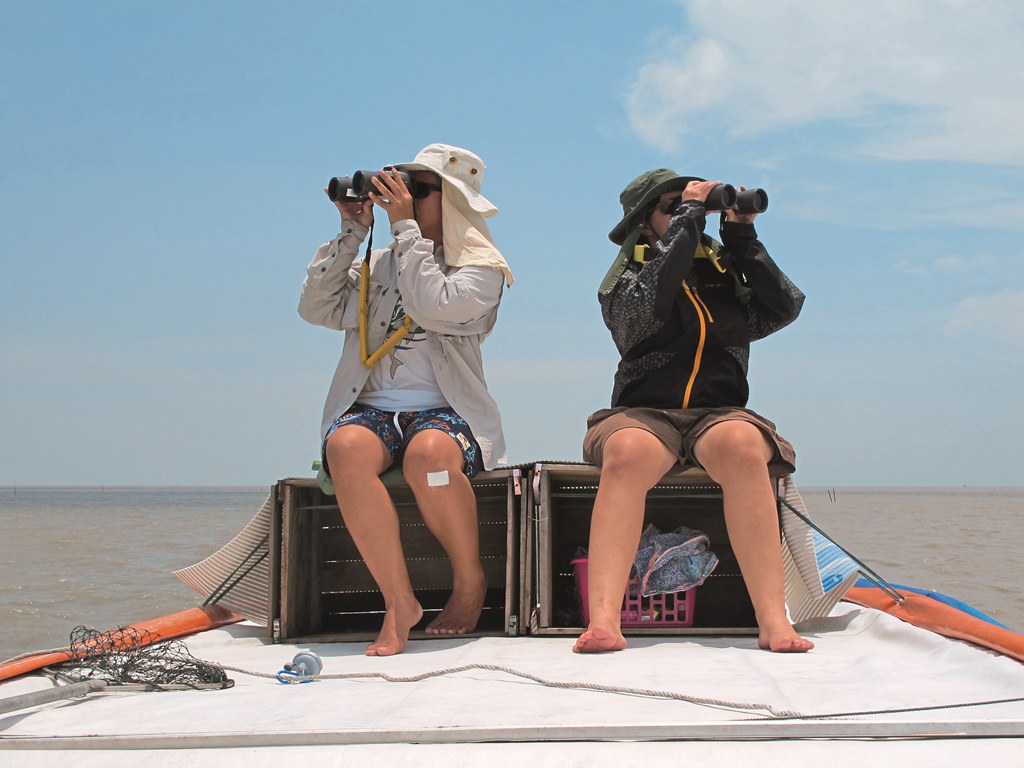
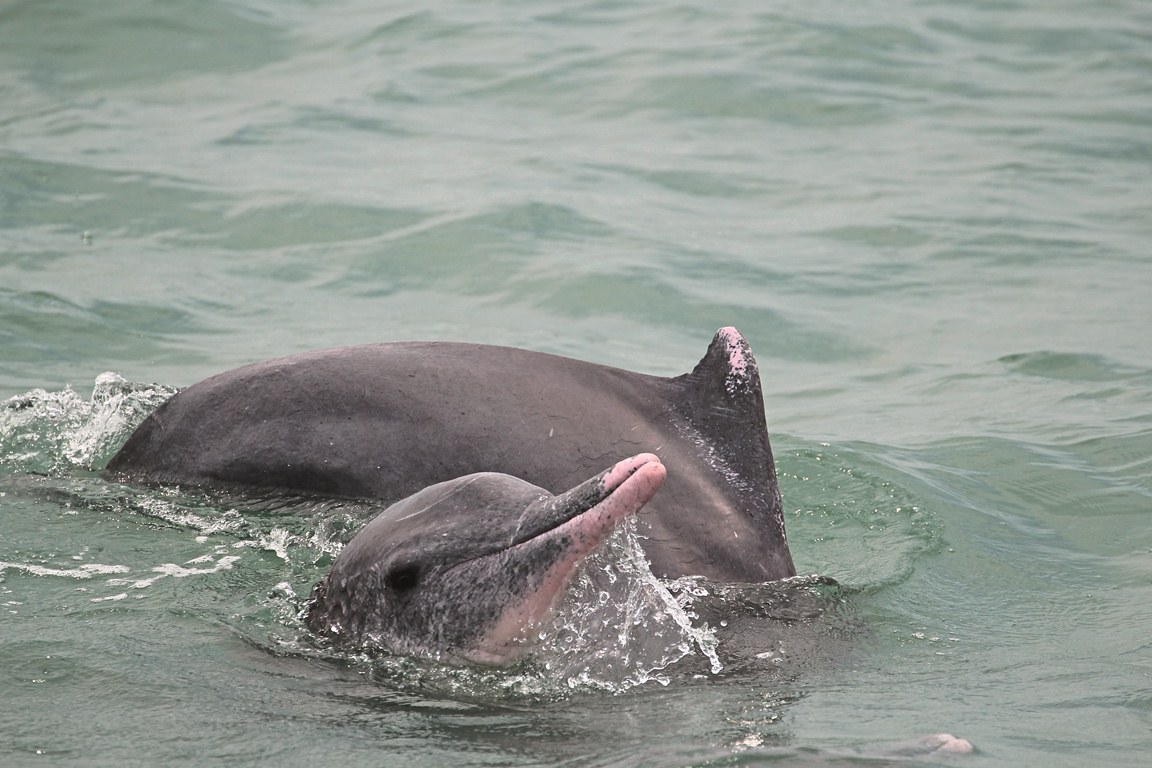


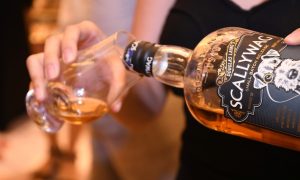

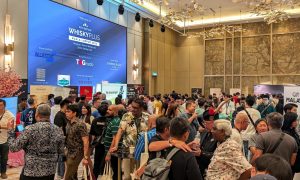









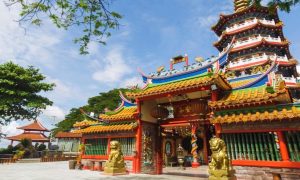



Sophia Cohen
Jenn Yee Chan
Joanne Lim for your reference